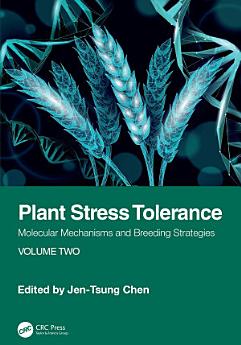Plant Stress Tolerance: Molecular Mechanisms and Breeding Strategies, Volume Two
About this ebook
This book proposes strategies involving immunity-boosting through releasing genetic resources from naturally resistant plants, regulating defense systems by phytohormones, promoting disease tolerance by biostimulants, and nanotechnology such as nanocarriers for managing biotic stressors. These positive approaches help to advance and accelerate breeding programs for disease-tolerant crops against various pests and pathogens.
Plant Stress Tolerance: Molecular Mechanisms and Breeding Strategies, Volume Two is an ideal reference for the research fields of plant pathology, plant disease management, plant physiology, plant functional genomics, multiple omics, systems biology, and crop breeding. The book inspires ideas from the reader regarding future research on disease-resilient crops to face the challenge of global climate change and the increasing human population.
About the author
Dr. Jen-Tsung Chen is a professor of cell biology at the National University of Kaohsiung in Taiwan. He also teaches genomics, proteomics, plant physiology, and plant biotechnology. Dr. Chen’s research interests include bioactive compounds, chromatography techniques, plant molecular biology, plant biotechnology, bioinformatics, and systems pharmacology. He is an active editor of academic books and journals to advance the exploration of multidisciplinary knowledge involving plant physiology, plant biotechnology, nanotechnology, ethnopharmacology, systems biology, and drug discovery. He serves as an editorial board member and a guest editor in several reputed journals. Dr. Chen published books in collaboration with international publishers on diverse topics such as drug discovery, herbal medicine, medicinal biotechnology, nanotechnology, bioengineering, plant functional genomics, plant speed breeding, CRISPR-based plant genome editing, and artificial intelligence. In 2023, Dr. Chen has been included in the World's Top 2% Scientists by Stanford University.







